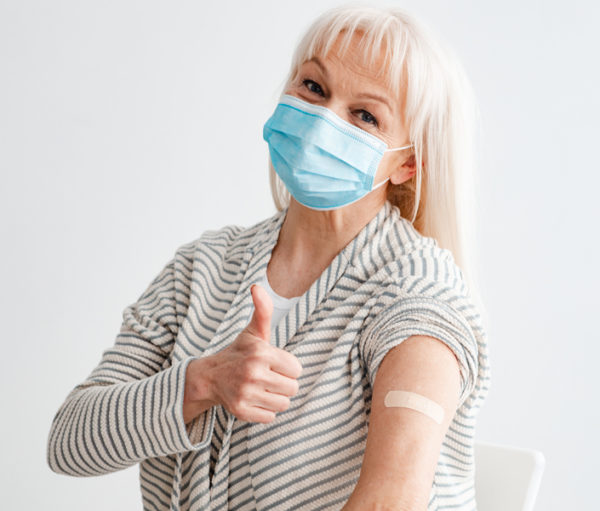Protecting Against COVID Is as Important as Ever

Maybe you’ve heard someone say something like this: “I’m not worried about COVID. If I get it, then I will be immune.” There have even been accounts of “COVID parties,” where people deliberately expose themselves to the virus. But trained medical experts assure us this is not a good idea. “You’d have to be crazy to get infected with this,” says Northwestern University health expert Dr. Robert Murphy, “It’s like playing with dynamite. Who needs the risk?”
A perception that the new omicron variant is “mild” is part of the problem, the experts say. “A more precise definition is that there appears to be less lung damage with infection from omicron and vaccinated people tolerate it very well,” said Northwestern Feinberg School of Medicine vice-chair Mercedes Carnethon, Ph.D. “However, with rates of hospitalizations rising, there are a great number of people who aren’t doing well with this ‘mild’ variant. The vast majority of those people hospitalized are unvaccinated; however, some of those cannot be vaccinated or are immune compromised. Thus, the impact is substantial.”
And a case of COVID can be far from an “over and done” event. Yes, some lucky people test positive for COVID-19 and experience no symptoms. Others have a mild case, but recover thoroughly. But for many patients, the effects are lingering. Two years of pandemic data shows that many are suffering from what’s called “long COVID.” They may have lung damage, fatigue and gastrointestinal problems. The disease also can cause bleeding, blood clots and inflammation in the brain and nervous system. In January 2022, the National Institute of Neurological Disorders and Stroke reported that long COVID symptoms can range “from a loss of taste and smell, impaired concentration, fatigue, pain, sleep disorders, autonomic disorders and/or headache to psychological effects such as depression or psychosis.”
Anyone can get a serious case of COVID, even children. But older adults and people with underlying health conditions such as diabetes, cancer, kidney disease and heart problems, are at higher risk. Experts from McMaster University in Ontario studied thousands of COVID patients aged 50 and older, and found that even those who did not need to be hospitalized often suffered troubling aftereffects, with mobility problems and decline in physical function. “Individuals with confirmed or probable COVID-19 had double the odds of worsening ability to engage in household activities and participate in physical activity than those without COVID-19,” reported McMaster professor Maria Beauchamp in January 2022.
It’s understandable that people are frustrated. Not even scientists agree what the future of the pandemic will be. “It is likely COVID-19 will end up being similar to the flu, and ultimately everybody will get it,” suggests Northwestern’s Dr. Murphy. But the longer we can avoid getting it, the better the situation will likely be. “Hopefully, as with flu, it will evolve to a less virulent form,” said Dr. Murphy. “It is likely we will never get rid of coronaviruses and the disease that it causes. The pandemic at some point will evolve into an endemic state. Controlling this infection will entail a modified vaccine every year to better match new variants, plus the immunity people get from having actual disease.”
Just as with the seasonal flu, better treatments and targeted vaccines are likely in our future. Meanwhile, public health experts say that right now, we can keep ourselves, our families and our nation safe by continuing to take precautions. Wear a good quality mask, continue to practice safe social distancing, and get your vaccines and boosters as recommended. Frequent testing, especially before social gatherings, also provides an extra measure of safety.
We’re all in this together! And we can all take steps to keep ourselves and our communities safe.
The information in this article is not intended to replace the advice of your health care provider. Ask your doctor if you have questions about the best way to protect yourself from COVID-19.
Source: IlluminAge with information from McMaster University, Northwestern University Feinberg School of Medicine, and the National Institute of Neurological Disorders and Stroke


